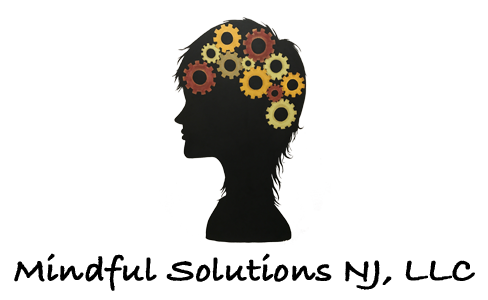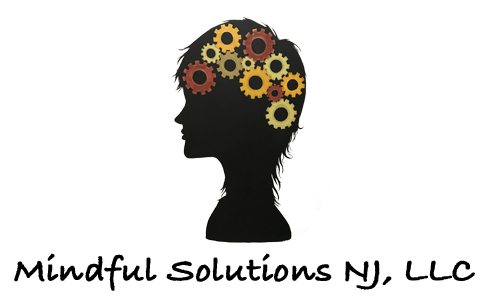Follow Us x
How can therapy help me?
A number of benefits are available from participating in therapy. Therapists can provide support, problem-solving skills, and enhanced coping strategies for issues such as depression, anxiety, relationship troubles, unresolved childhood issues, grief, stress management, body image issues and creative blocks. Many people also find that counselors can be a tremendous asset to managing personal growth, interpersonal relationships, family concerns, marriage issues, and the hassles of daily life. Therapists can provide a fresh perspective on a difficult problem or point you in the direction of a solution. The benefits you obtain from therapy depend on how well you use the process and put into practice what you learn. Some of the benefits available from therapy include:
•Attaining a better understanding of yourself, your goals, and your values
•Developing skills for improving your relationships
•Finding a resolution to the issues or concerns that led you to seek therapy
•Learning new ways to cope with stress and anxiety
•Managing anger, grief, depression, and other emotional pressures
•Improving communications and listening skills
•Changing old behavior patterns and developing new ones
•Discovering new ways to solve problems in your family or marriage
•Improving your self-esteem and boosting self-confidence
•A reduction in flashbacks and intrusive thoughts
Do I really need therapy? I can usually handle my problems.
Everyone goes through challenging situations in life, and while you may have successfully navigated through other difficulties you've faced, there's nothing wrong with seeking out extra support when you need it. In fact, therapy is for people who have enough self-awareness to realize they need a helping hand, and that is something to be admired. You are taking responsibility by accepting where you're at in life and making a commitment to change the situation by seeking therapy. Therapy provides long-lasting benefits and support, giving you the tools you need to avoid triggers, re-direct damaging patterns, and overcome whatever challenges you face.
Why do people go to therapy and how do I know if it is right for me?
People have many different motivations for coming to psychotherapy. Some people may be going through a major life transition (unemployment, divorce, etc.), or may not be handling stressful circumstances well. Some people need assistance managing a range of other issues such as low self-esteem, depression, anxiety, addictions, relationship problems, spiritual conflicts and creative blocks. Some people bravely seek therapy to find healing after abuse and other types of trauma. Therapy can help provide some much-needed encouragement and help with skills to get them through these periods. Others may be at a point where they are ready to learn more about themselves or want to be more effective with their goals in life. In short, people seeking psychotherapy are ready to meet the challenges in their lives and ready to make changes in their lives.
What is therapy like?
Because each person has different issues and goals for therapy, therapy will be different depending on the individual. In general, you can expect to discuss the current events happening in your life, your personal history relevant to your issue, and report progress (or any new insights gained) from the previous therapy session. Depending on your specific needs, therapy can be short-term, for a specific issue, or longer-term, to deal with more difficult patterns or your desire for more personal development. Either way, it is most common to schedule regular sessions with your therapist (usually weekly).
It is important to understand that you will get more results from therapy if you actively participate in the process. The ultimate purpose of therapy is to help you bring what you learn in session back into your life. Therefore, beyond the work you do in therapy sessions, your therapist may suggest some things you can do outside of therapy to support your process - such as reading a pertinent book, journaling on specific topics, noting particular behaviors or taking action on your goals. People seeking psychotherapy are ready to make positive changes in their lives, are open to new perspectives, and take responsibility for their lives.
What about medication vs. psychotherapy?
It is well established that the long-term solution to mental and emotional problems and the pain they cause cannot be solved solely by medication. Instead of just treating the symptom, therapy addresses the cause of our distress and the behavior patterns that curb our progress. You can best achieve sustainable growth and a greater sense of well-being with an integrative approach to wellness. Working with your medical doctor you can determine what's best for you, and in some cases a combination of medication and therapy is the right course of action.
Do you take insurance, and how does that work?
We are in network with multiple insurance payers. To determine if you have mental health coverage through your insurance carrier, the first thing you should do is call them. Check your coverage carefully and make sure you understand their answers. Some helpful questions you can ask them:
•What are my mental health benefits?
•What is the coverage amount per therapy session?
•How many therapy sessions does my plan cover?
•If we are not in network with your insurance you can ask how much does my insurance pay for an out-of-network provider?
•Is approval required from my primary care physician?
Does what we talk about in therapy remain confidential?
Confidentiality is one of the most important components between a client and psychotherapist. Successful therapy requires a high degree of trust with highly sensitive subject matter that is usually not discussed anywhere but the therapist's office. Every therapist should provide a written copy of their confidential disclosure agreement, and you can expect that what you discuss in session will not be shared with anyone. This is called "Informed Consent". Sometimes, however, you may want your therapist to share information or give an update to someone on your healthcare team (your Physician, Naturopath, Attorney), but by law your therapist cannot release this information without obtaining your written permission.
However, state law and professional ethics require therapists to maintain confidentiality except for the following situations:
•Suspected past or present abuse or neglect of children, adults, and elders to the authorities, including Child Protection and law enforcement, based on information provided by the client or collateral sources.
•If the therapist has reason to suspect the client is seriously in danger of harming him/herself or has threated to harm another person.
One of the most common statements we hear from people considering therapy is:
"Everyone says I should get help because of what I have been through. But what they don't understand is that the last thing I want to do is talk about what happened to me. I just want to forget!"
At Mindful Solutions NJ, LLC the first thing we do is develop a relationship with you. We understand that the therapy relationship is just like any other relationship where trust is earned. You are not going to feel comfortable talking about hard things with us until we have a therapeutic relationship established. We understand that you wouldn't want to spend an hour with a stranger talking about these challenging issues.
Any well-trained trauma informed therapist will not ask you to come in and share all about your adverse life experience in detail from beginning to end. There is a time when we work together to address the past so it does not interfere with your present, but it is done in a way that is supportive and healing, not intrusive and overwhelming. EMDR, one of the primary trauma treatments we utilize, does not require detailed narration of past difficult events in order to resolve trauma.
Here is what you can expect when you meet with a therapist from Mindful Solutions NJ, LLC (or any other trauma informed therapist). The first few sessions will be all about learning who you are; what your strengths are and what you want to work on. You will also be learning many new skills for coping more effectively with difficult memories and emotions. Together with your therapist, we will develop a plan for therapy that allows you to function at your best and helps you put the past where it belongs, in the past.
Eye Movement Desensitization and Reprocessing (EMDR) therapy is a mental health treatment that has been extensively researched and proven effective for the resolution of mental health symptoms from adverse life experiences. Distressing life events can overwhelm a person's ability to cope have a lasting negative effect on mental, emotional, and physical health. EMDR therapy is an integrative psychotherapy that incorporates elements from many different treatment approaches for people of all ages suffering psychological distress.
EMDR therapy can be thought of as a physiologically based therapy that helps a person see upsetting experiences in a new and less disturbing way. Though it remains unknown how any form of therapy or psychotropic medication works on the brain, EMDR therapy seems to have a direct effect on the way that the brain processes information, similar to what occurs naturally during dreaming or REM (rapid eye movement) sleep. In REM sleep, the brain's natural healing process helps to make sense of and integrate experiences into adaptive learning.
The brain's information processing system works similarly to the body's natural healing process. Just as the body is designed to naturally heal after an injury to restore physical health, the brain is also designed to move toward mental health, unless overwhelmed by distressing events or experiences. When adverse childhood or adult experiences occur, the brain can get overwhelmed and unable to process information as it typically does. Disturbing moments or experiences become stuck in the brain's memory networks as they were originally experienced, continuing to negatively influence beliefs about self, relationships, and life. The brain's information processing system is blocked or out of balance, developing psychological and emotional wounds that can fester and cause suffering. When these blocks in the brain's memory networks are removed, healing occurs just as it does for the body. EMDR trained clinicians use procedures, skills and resources to help clients activate their natural healing processes, without need for sharing details or doing homework.
EMDR therapy facilitates change in the meaning of painful events and the cause of presenting symptoms and issues. Rather than continuing to experience old emotions and beliefs about self that impact present functioning, clients are able to live in the present, knowing they are worthwhile, good enough, did the best they could, are strong, capable, safe enough, with choices in the present.
Unlike talk therapy, the insights gained in EMDR therapy result primarily from the client's own accelerated intellectual and emotional brain and body processing rather than from the therapist's interpretation. It is the client's own brain that does the healing. Clients conclude EMDR therapy feeling transformed and empowered by the very experiences that once brought them pain.
(Adapted from www.emdria.org)

